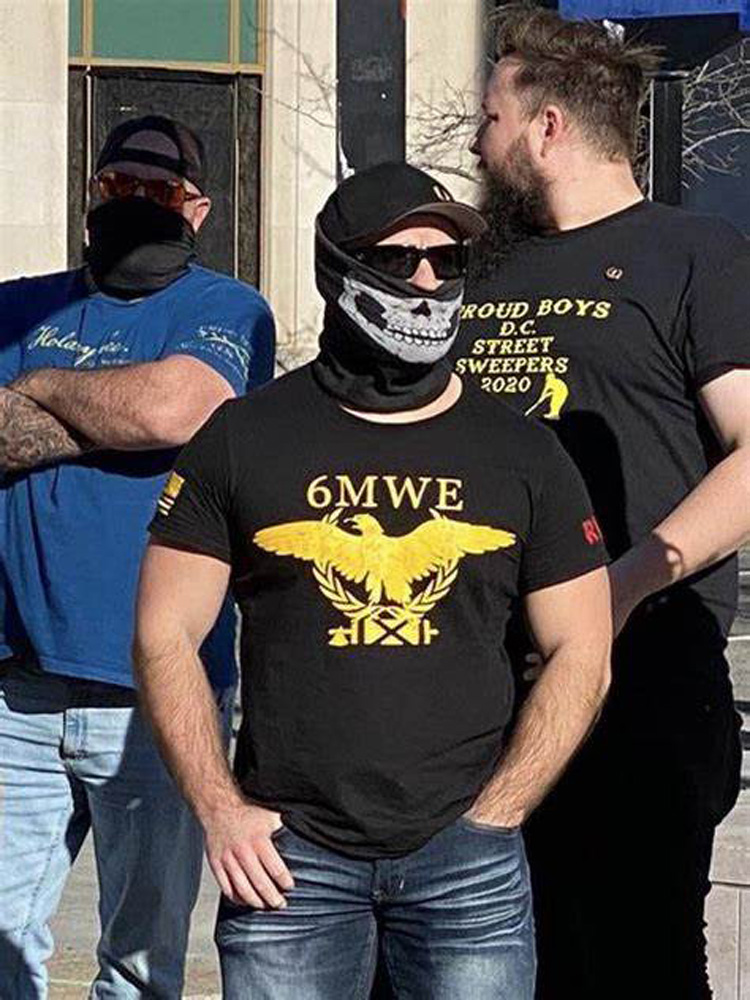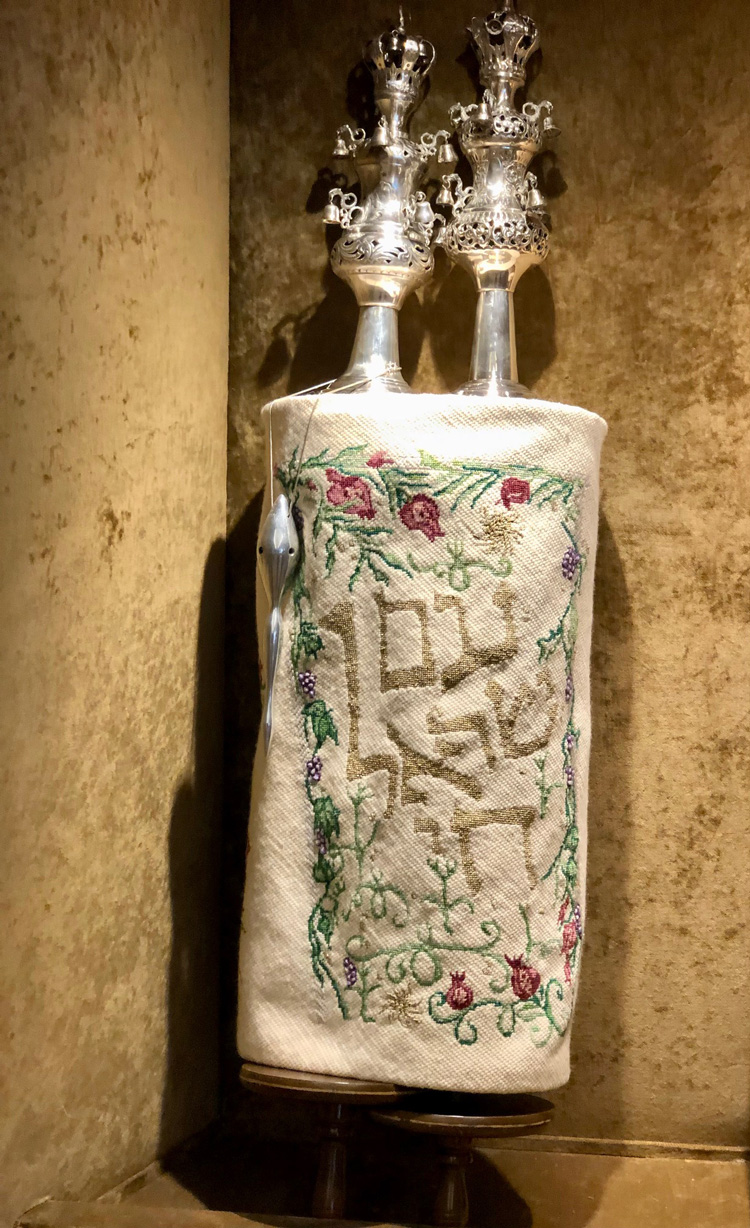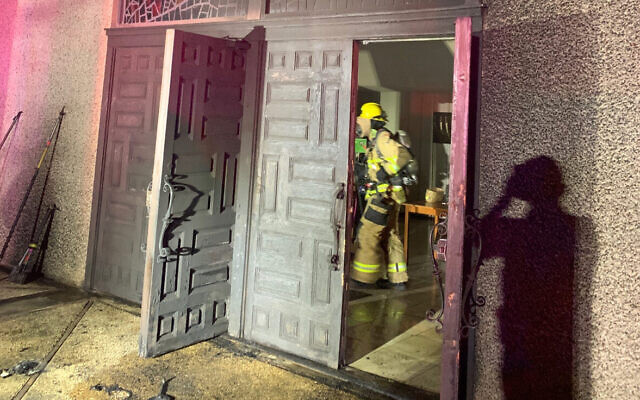Hanukkah, the Festival of Lights, is less a holiday and more the commemoration of a victory by Jews in 138 BCE against a larger army of Assyrian-Greeks. At stake: whether the Jews would be forced into worshipping the Greek pantheon of gods and goddesses. Led by a group of orthodox, non-integrationist warriors called the Maccabees, the Hebrews won and reclaimed their holy temple. Judaism uses a lunar calendar, so Hanukkah can start as early as Thanksgiving or coexist with Christmas. Around this time of year, people who want to acknowledge only Christmas get into a snit when it’s pointed out that there are close to a dozen historic and religious celebrations right about now.
Someone who heard me say, “You don’t hear us complaining about a war on Hanukkah, and there actually was one” corrected me this year.
“You mean ‘there is one,’ ” she said.
Anti-Semitism continues in Texas in a variety of extremely visible ways. From neo-Nazi banners and smaller incidents in colleges across Texas to arson at an Austin synagogue and a hostage situation in a Colleyville, 2021 and 2022 seemed like great times for people who love to hate Jewish folks.
By FBI statistics, in 2020, 59% of religious-based hate crimes were aimed at Jews, who represent less than 2% of the American population. The Anti-Defamation League (ADL) said 2021 was the highest year on record for harassment, vandalism, and violence directed against Jews since the ADL started tracking the data in 1979. Not surprising, since the previous U.S. president went out of his way to court American neo-Nazis and their sympathizers on the right.

Photo courtesy Wikimedia Commons
In 2018, a gunman killed 11 Jewish worshipers at Pittsburgh’s Tree of Life synagogue. The ADL, Southern Poverty Law Center, and numerous other social justice groups have labeled the spike in anti-Semitism and accompanying racism over these last five years as a symptom of Christian nationalism, especially as conservative politicians and celebrities repeat and strengthen anti-Semitic theories that goad followers into acts like graffitiing houses of worship to killing Jews. Remember the Proud Boys last January 6 wearing shirts that said, “6 Million Wasn’t Enough”? The bipolar ramblings from the artist known as Ye are nothing new — he’s just a visible Black man spewing Nazi tropes. Perhaps the joke is on him. Hitler certainly wouldn’t have been a fan of his.
Christian nationalists’ agenda includes declaring Christianity as the national religion of the United States, despite the clear direction of the First Amendment and its Establishment clause, which prohibits government from establishing a religion. The downstream effects of the extremist forms of Christian nationalism show up as school board members pull anti-hate education materials from classrooms. It’s not just a Jewish issue. State and local candidates across the country and especially in Texas won this year by deploring so-called “woke” policies that include equitable teaching about the American role in the enslavement of Africans since 1619. Remember that Hitler started by banning books a long time before he put Jews in concentration camps.
In October 2021, a neo-Nazi set fire to the door at Beth Israel, Austin’s oldest synagogue. That month was a great time for neo-Nazis in our state capital. There in the weeks before Halloween 2021, a neo-Nazi group launched a hate campaign that involved hanging banners over freeways near the local Jewish community center and distributing hate-filled leaflets. The 18-year-old who committed the crime destroyed wood and stained glass and caused smoke damage. He was indicted on federal hate crimes and a felony arson charge.
If you didn’t hear about this, it’s likely because, although hate crimes occur on the daily, the mainstream media gatekeep a lot of the content you’re ultimately able to access. That’s ironic because one of the longest-standing Nazi tales is that Jews control the media. It’s also true that, as Black civil rights observers have noted, the violence is nothing new. It’s just being recorded in real time and more frequently reported.
Case in point: The hostage situation at Colleyville’s Congregation Beth Israel in January was livestreamed until the FBI cut the feed. A British citizen who was allowed into the congregation during a Shabbat service pulled out a gun and held five people hostage for about 11 hours, all the while spewing hate for Jews, Israel, and American military policies. The response from the larger religious community was essentially shock — how could this happen here?
But it’s happened here. Twice. In 2019, a gunman at the West Freeway Church of Christ in White Settlement opened fire and killed two parishioners. He was killed by an armed member of the church’s security force. Nearly 10 years earlier, in September 1999 during an evening youth program at Wedgewood Baptist Church, a U.S. Navy veteran with ties to anti-Semitic and KKK groups walked in armed with two handguns and a pipe bomb. He shot 16 people, killing seven.

Photo by Laurie James
The difference in these two incursions into houses of worship is that the response from West Freeway was informed by what happened at Wedgewood, much like the response of Tarrant County synagogues was informed by the violence at the Tree of Life in Pennsylvania. Across Texas, Jewish houses of worship have participated in trainings that cover everything from situational awareness to countering active threats to Stop the Bleed and other emergency life-saving training. In the Jewish community in particular, buildings have been hardened with access control, state-of-the-art cameras, and the routine presence of uniformed off-duty officers. The teenage arsonist who set fire to Beth Israel’s door was caught with a combination of video footage and a tip from a staffer. This being Texas, you’ll also never know if a congregant is carrying their own weapon or is about to inflict violence.
“It is a shame that we have to devote so many resources to security, but no one or no organization is immune from violence today,” said Barry Abels, executive director of the Jewish Federation of Fort Worth and Tarrant County. “We have to be prepared, and we also need to support each other as a community and share information to reduce these acts of violence, especially in places that represent peace and sanctuary.”
The story of Hanukkah is one in a series of anti-Semitic episodes aimed at the Jews, who were the original monotheists. I like to point out that had the small Maccabee force failed against the larger pagan armies, there would be no Christmas. At Beth-El Congregation, there’s a torah scroll that belonged to a synagogue in Uhrineves, a small town outside Prague. Hollace Weiner, who serves as the archivist for Fort Worth’s Jewish community, wrote that “the scroll was among 1,564 torahs the Nazis seized across the region.” The scrolls were stored in a forest and later ransomed for much-needed cash by the then-communist government of Czechoslovakia to London’s Westminster Synagogue. They were restored and loaned to synagogues around the world, whose leaders act as caretakers and share the story –– at Hanukkah, which starts Dec. 18, and every day.












